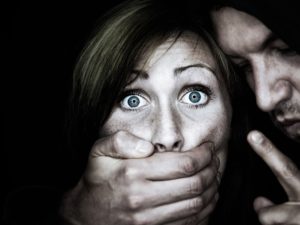When You Need Protection After Sexual Assault
Posted October 23rd, 2018 by Anthony Carbone, PC.
Categories: Domestic Violence.
 First, it was the “#MeToo” movement. This was further compounded by the recent confirmation hearings regarding the appointment of the latest Supreme Court justice. Whatever your political affiliations, there’s one thing for certain. Sexual assault is by far one of the most intrusive crimes known to mankind. If you’re a victim, there’s no doubt that you’ll want to know about laws in place for your protection.
First, it was the “#MeToo” movement. This was further compounded by the recent confirmation hearings regarding the appointment of the latest Supreme Court justice. Whatever your political affiliations, there’s one thing for certain. Sexual assault is by far one of the most intrusive crimes known to mankind. If you’re a victim, there’s no doubt that you’ll want to know about laws in place for your protection.
On first glance, you may already think that such legislation has been around for quite some time. After all, the law does consider sexual assault as a predicate act of domestic violence. One difference. Restraining orders premised on domestic violence have specific requirements. Among them is the necessity that the perpetrator and the victim fall into particular relationship categories.
Definitions contained as part of the domestic violence statutes state the particulars. According to NJSA 2C:25-19, victims of domestic violence fall under the following classifications:
- They are either over age 18 or emancipated minors
- Their assailant is a “spouse, former spouse, or any other person who is a present household member or was at any time a household member”
- The victim has a child with or is expecting one with the person who committed the sexual assault
- The sexual assault victim and the perpetrator were in a dating relationship
Sexual assault in New Jersey is defined in NJSA 2C:14-2. You should know that New Jersey refers to sexual assault as rape. Meanwhile, the New Jersey State Police provides an expansion on the definition of sexual violence, saying that it includes “any form of unwanted, unwelcome or coercive sexual behavior.” This not only includes those who have not given their consent to sexual contact – but also others who are unable to do so because of age or disability.
SASPA: Protection for Sexual Assault Victims
The Sexual Assault Survivor Protection Act (SASPA) was passed by the legislature in November 2015 and became a law in May of 2016. As you most likely know, domestic violence victims may be granted restraining orders when there are concerns about future harm. Naturally, the idea is to refrain from contact between defendants and victims.
SASPA operates under the same basic principles, although there is no need for the victims to fall into any of the categories specified in NJSA 2C:25-19. That said, the names and acronyms are slightly different. A TPO is a temporary protection order. Likewise, an FPO is a final protection order.
TPOs and FPOs may be granted for a variety of sexual offenses, beginning with lewdness and groping. Of course, they are also available for the ultimate crimes of sexual violence.
Survivors do not only apply for protective orders to avoid sexual contact. They may be concerned about harassment in person or by other means of communication, including social media. Temporary protective orders are granted without notification or a requirement that the defendant is present at a hearing.
Final protective orders are not granted until both parties have had the opportunity to appear at a court hearing. Failure to comply with both TPOs and FPOs constitutes a criminal offense and is punishable by law as described in NJSA 2C:29-9.
Sexual Assault Protection Rules
There are a number of rules when it comes to seeking protection for sexual assault. First, there is no requirement that the act is reported to the police. Additionally, intoxication by either party does not discount the need for a protective order. Evidence of physical harm is not a necessity – nor will an application be denied because the victim failed to leave the scene of the occurrence.
Meanwhile, there are other considerations as far as testimony. The court will not allow information into the record as far as the way the victim was dressed – or past sexual behavior.
Contact Us
While victims of sexual assault may obtain representation from the prosecutor as far as the criminal aspects of their case, they may need legal assistance in securing a protective order. Meanwhile, individuals charged as defendants should seek an experienced criminal defense lawyer regarding the many aspects of their case. The Law Offices of Anthony Carbone has many years of experience in this practice area. Contact us to see how we can help you.


